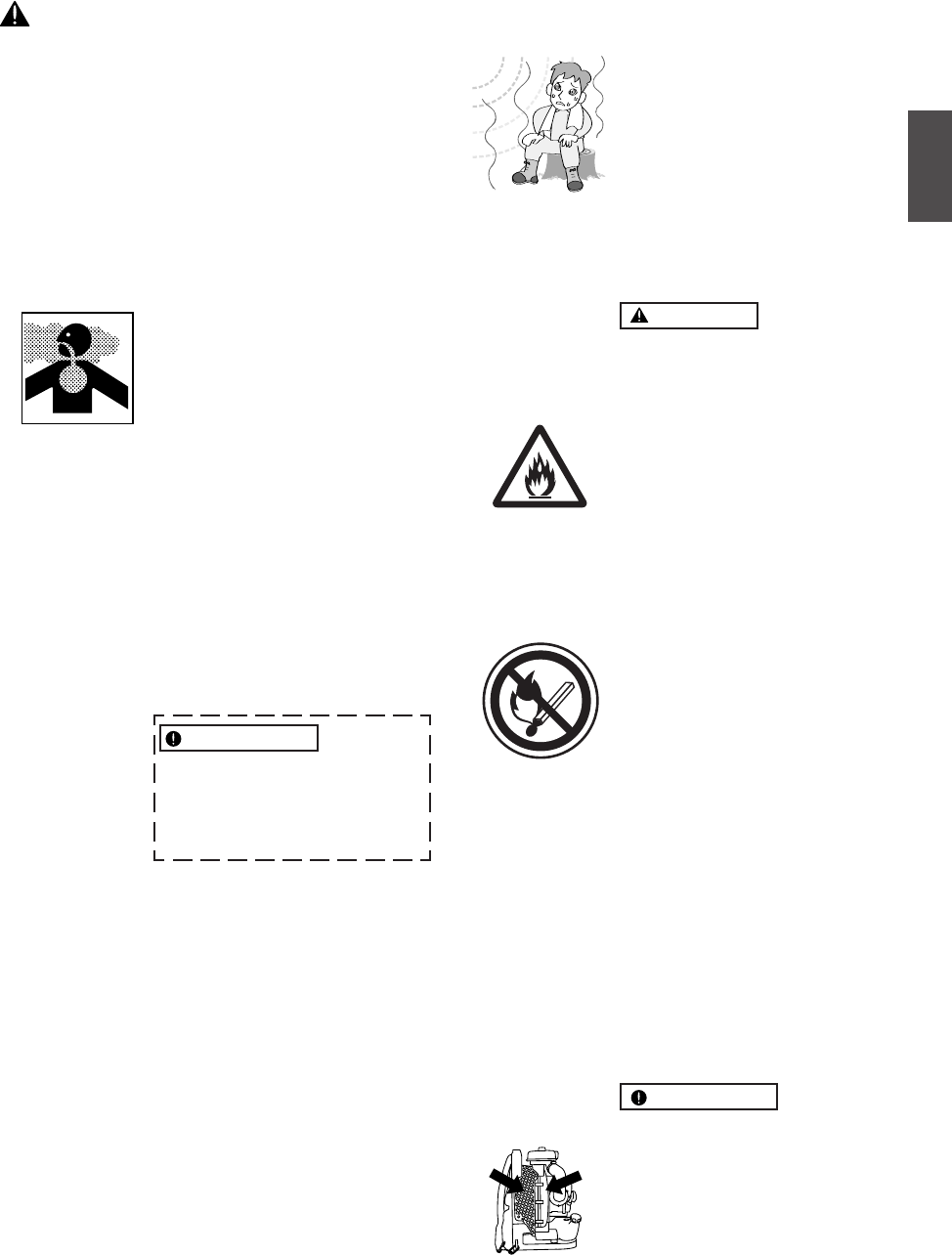
GB-5
EB7001
G
B
1. Operate power equipment only at
reasonable hours-not early in the
morning or late at night when
people might be disturbed. Com-
ply with times listed in local ordi-
nances.
2.To reduce sound levels, limit the
number of pieces of equipment
used at any one time.
3. Operate power blowers at the
lowest possible throttle speed to
do the job.
4. Check your equipment before op-
eration, especially the muffler, air
intakes and air filters.
WORKING PLAN
• When planning your work sched-
ule, allow plenty of time to rest.
5. For safe operation
8. The ignition system of your unit
produces an electromagnetic
field of a very low intensity. This
field may interfere with some
pacemakers. To reduce the risk
of serious or fatal injury, persons
with pacemaker should consult
their physician and the pace-
maker manufacturer before oper-
ating this tool.
WORKING CIRCUMSTANCE
1. To reduce the risk of injury asso-
ciated with exhaust fume inhala-
tion, do not operate in
unventilated area. The exhaust
gases contain harmful carbon
monoxide.
2. Avoid using the blower where
stable footing and balance are
not assured.
3. Never operate the machine in
high wind, bad weather, poten-
tially explosive atmosphere, when
visibility is poor or in very high or
low temperatures. (Our recom-
mended use environment is be-
low 40 degrees C (104 degrees
F).)
AVOID NOISE PROBLEM
IMPORTANT
Check and follow the local
regulations as to sound level
and hours of operations for
blower.
Limit the amount of time over
which the product is to be used
continuously to somewhere
around 30 ~ 40 minutes per ses-
sion, and take 10 ~ 20 minutes of
rest between work sessions. Also
try to keep the total amount of
work performed in a single day
under 2 hours or less.
FUEL
WARNING
To reduce the risk of fire and burn
injury:
a) Handle fuel with care. It is highly
flammable.
b) Do not smoke while handing fuel.
c) Do not refuel a hot engine.
d) Do not refuel a running engine.
e) Avoid spilling fuel or oil. Always
wipe unit dry before using.
f ) Move at least 10 ft. (3 meters)
away from the fueling point be-
fore starting engine.
g) Always store gasoline in a con-
tainer approved for flammable liq-
uids.
h) Make sure the unit is properly as-
sembled and in good operating
condition.
i ) Do not use the blower near a fire,
as aiming the blower in the direc-
tion of a flame may cause flam-
mable substances to ignite.
BEFORE STARTING THE
ENGINE
• Each time before starting the en-
gine, inspect the entire unit to see
if every part is in good order and
is securely tightened in place. If
any damage is found in the fuel
line, the exhaust line, or the igni-
tion wiring, do not use the blower
until it has been repaired.
IMPORTANT
• Before starting operation, al-
ways make sure to check if any
obstacles are left inside the
volute case and net. The ob-
stacles may cause damage on
fan and volute case and serious
injury.
















